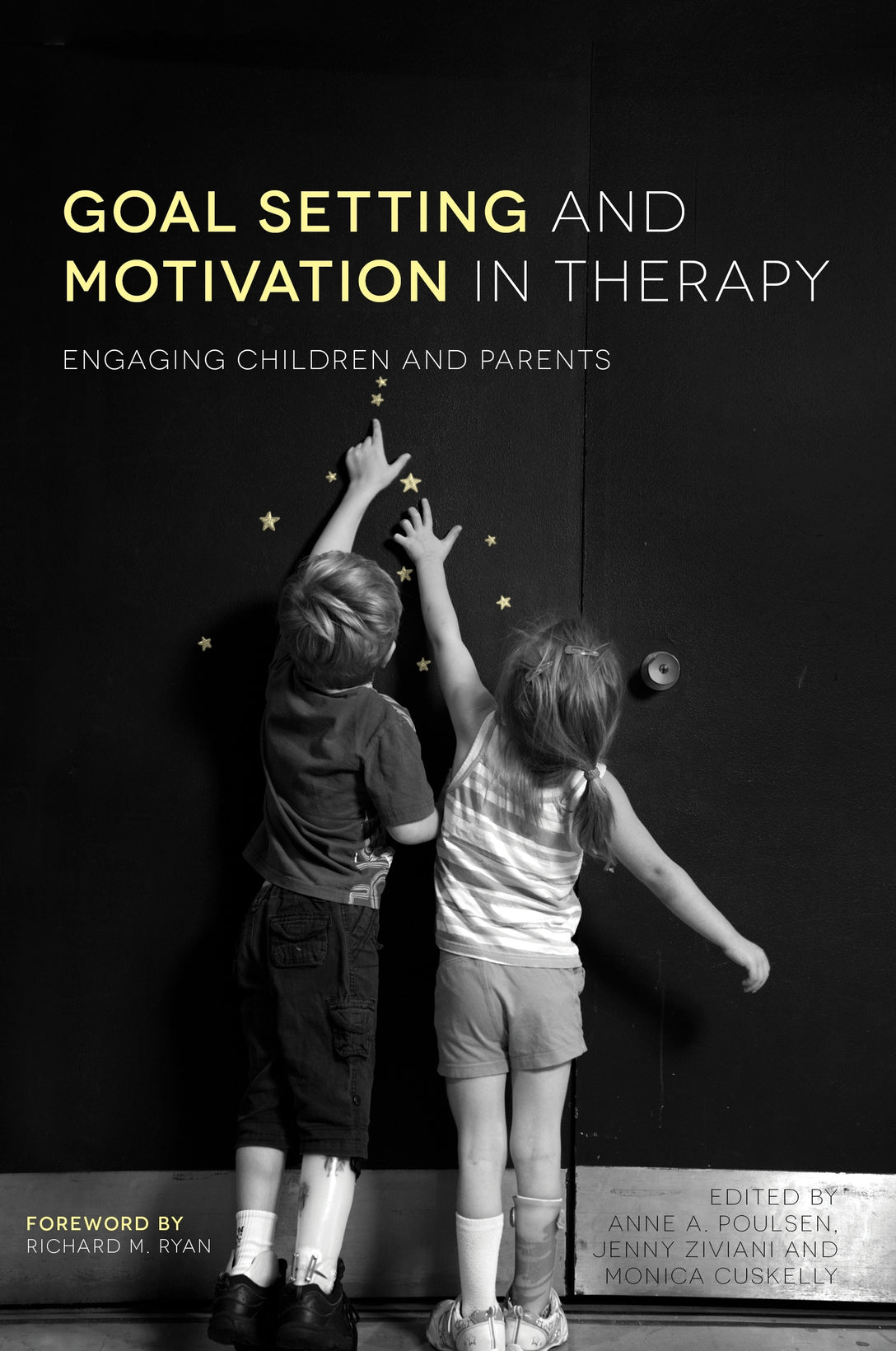
Press Reviews
from the foreword by Richard M. Ryan, Institute for Positive Psychology and Education, Australian Catholic University
The essays collected in this volume helpfully guide professionals to be better able to support these basic needs, articulating in practical terms the component skills and attitudes required to facilitate children's Autonomy, Relatedness and Competence in treatment settings. Building on strong empirical findings and an increasingly rich clinical literature in SDT and related approaches, these chapters provide steady scaffoldings on which practitioners' competence and creativity can ascend.
Lisa A.Chiarello, PT, PhD, PCS, FAPTA, Professor, Department of Physical Therapy and Rehabilitation Sciences, Drexel University
Do we really need a book on writing goals? YES, YES, and YES! We have been educating students and therapists for decades on how to collaboratively develop meaningful goals and therapists continue to tell us how challenging the process is for them. Finally, a book that blends the theoretical and practical perspectives to guide therapists in engaging children and families and supporting their autonomy, relatedness, and competence. A must read - an impressive book that is comprehensive, with the depth and rigor the topic deserves, but at the same time is written in a useful format that empowers therapists and provides them with the tools they need to engage children and families in setting and supporting the goals that are meaningful to them.
Dr May Lim, OT, PhD, GCertHigherEd, Assistant Professor, Deputy Programme Director, Academic Programmes Deputy Director, Centre for Learning Environment and Assessment Development (Co-LEAD), Singapore Institute of Technology
As an ancient Chinese saying goes, "A good beginning is half the success". Goal setting and motivation lay the foundation for effective therapy. While goal setting appears to be deceptively simple, it is surprisingly challenging for many to do well. This book provides therapists with inspirations and practical strategies to set goals that are instrumental for successful therapy. A wonderful book that comprehensively addresses the art and science of goal setting!
Annette Majnemer, Director and Associate Dean, School of Physical & Occupational Therapy, McGill University
Therapy goals are best achieved if children are intrinsically motivated to act. Meaningful engagement is optimized by control and choice (autonomy), connection and collaboration (relatedness), and capability and confidence (competence). This articulate and informative text provides a superb synthesis of the principles of goal-setting and motivation, which are critical ingredients to a child's personal growth, participation and mastery.
Virginia Wright, Chair in Paediatric Rehabilitation, Bloorview Children’s Hospital Foundation, Associate Professor, Department of Physical Therapy, University of Toronto
This internationally-authored book, edited by Australian experts in the field, Poulsen, Ziviani and Cuskelly, masterfully brings together the concepts of self-determination, autonomy, relatedness, competence, motivation and family-centred care, to form a comprehensive evidence-informed guide on goal setting for pediatric rehabilitation and beyond. A highly engaging read illustrated by widely applicable scenarios and linked to goal setting resources that will allow the reader to take the next steps with the families with whom they work. A must read for novice and expert clinicians alike, and an ideal resource to include in health care professional training and orientation of new staff in pediatric settings.
Educational Psychology in Practice
A thought provoking book which supports the present values reflected in pupil centred planning in the new SEND code of practice.
